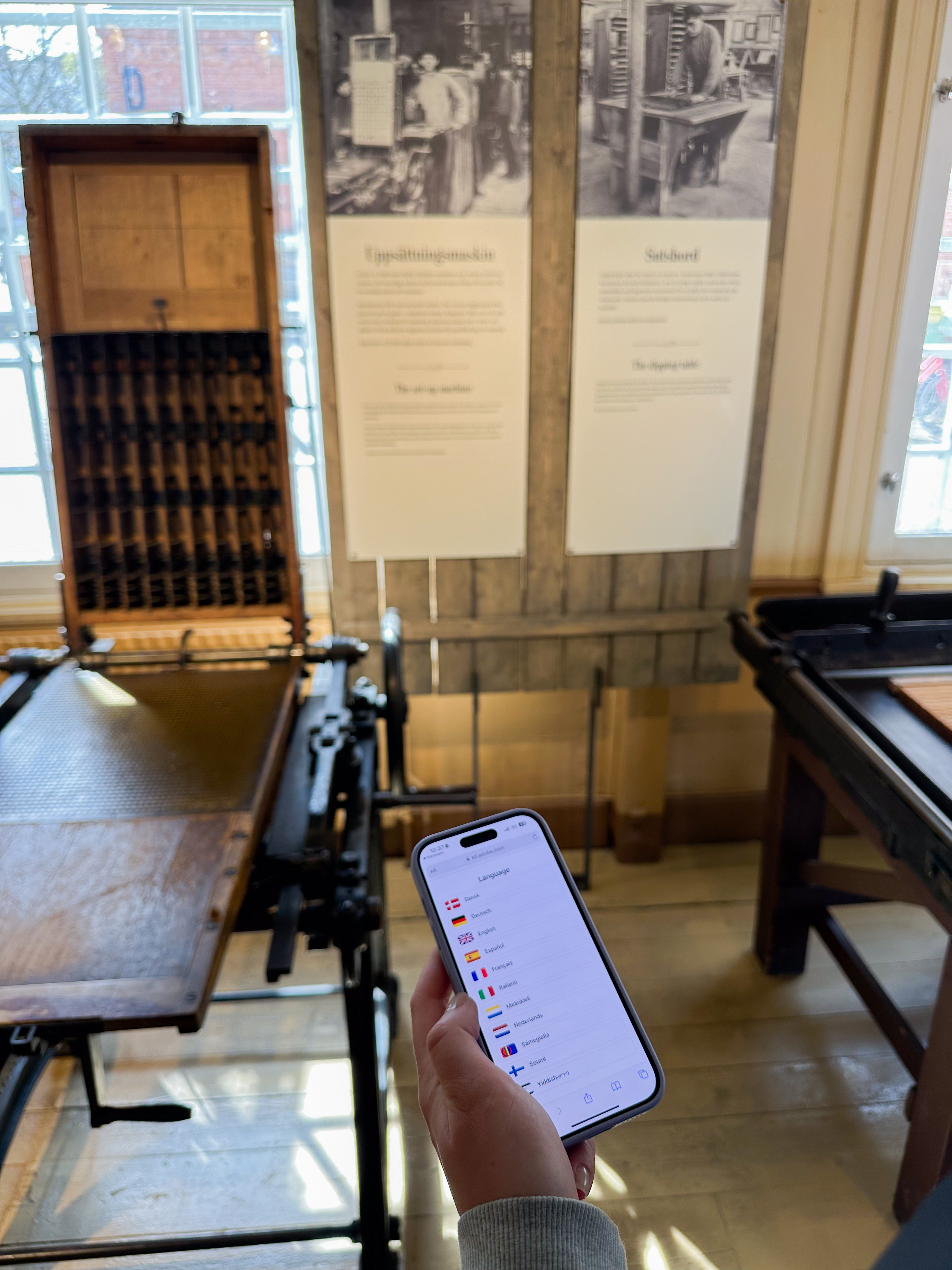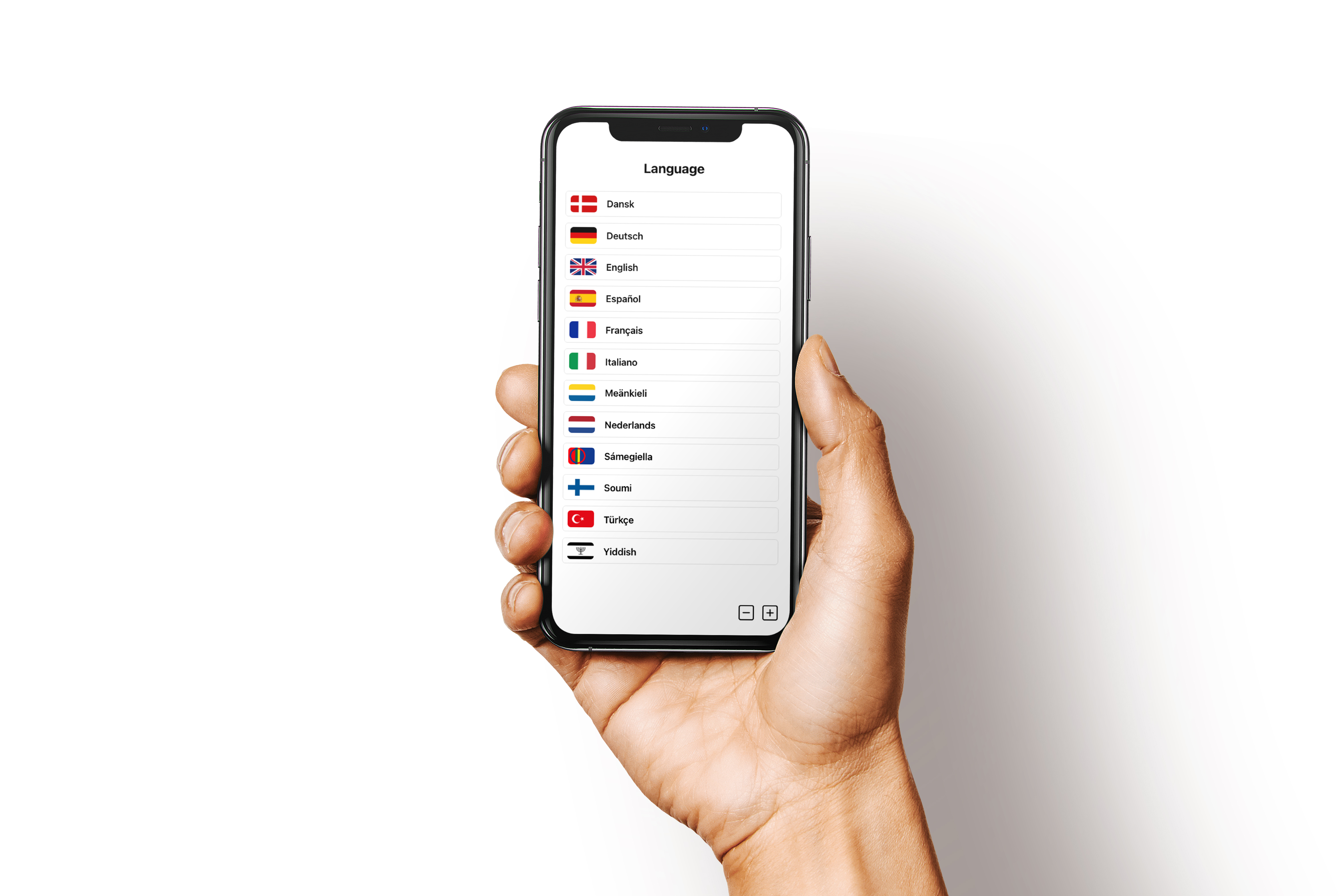Enhancing Cultural Accessibility: Prototype Testing for Digital Language Management in Museums
A qualitative study to conclude what digital opportunities are suitable and identify important aspects when designing a digital solution for enhancing multilingual access to museum information.
Insufficient linguistic diversity in museums contradicts principles of inclusion and accessibility. This issue occurs due to space constraints and differences in language length, resulting in the exclusion of parts of the community and undermining museums' role as inclusive institutions.
The goal of this study was to identify essential features for a digital translation solution that contribute to enhancing visitors' museum experience, ensuring it is perceived positively rather than as a disruption. To achieve this goal, the research was initiated by contacting various Swedish museums, inquiring answers regarding their current translation solutions. This initial step aimed to draw inspiration for the prototype. Subsequently, the prototype was developed and tasks and interview questions aimed to find answers to the research questions were designed. Nine participants engaged in testing the prototype, offering feedback and opinions throughout both the task execution and subsequent follow-up interviews.
The participants found the prototype easy to interact with and navigate. They appreciated the clean design and the convenience of using their own device by simply scanning a QR code. The ability to both read and listen to the translations was an important feature for them. They valued the onboarding experience, noting that the instructions were clear and effective. Alongside many positive opinions, we also received actionable feedback that we could use. We utilized this feedback to iterate on our prototype, bringing it a step closer to the final product.
The prototype demonstrates its potential as a foundation for developing digital translation solutions for museums. This study's practical implication is that it provides valuable insights into digital translation solutions, and further development and implementation of such solutions can enhance tourism, thereby contributing to the region's cultural and economic growth.

%20NMD_LFF-EL.jpg)

